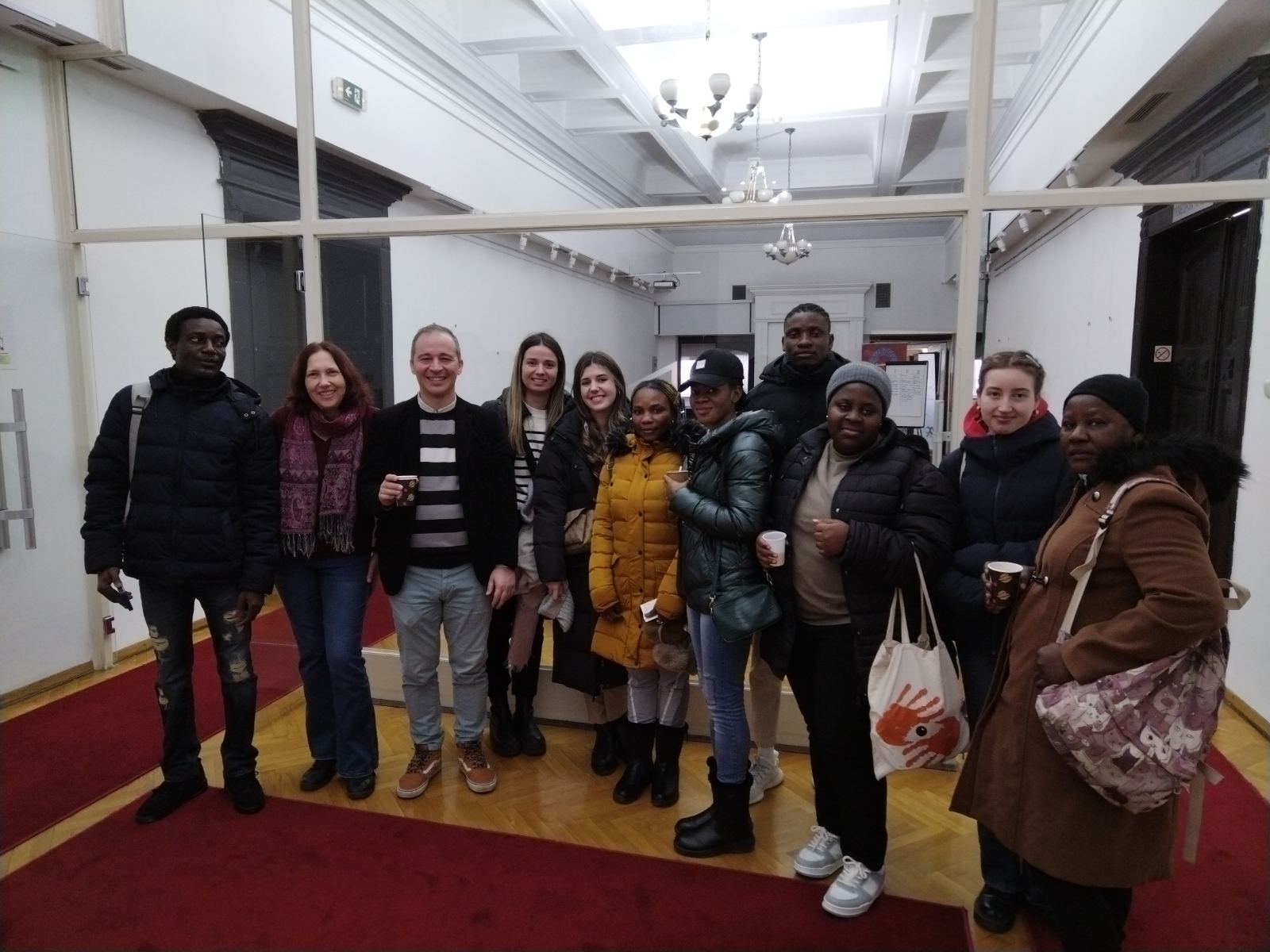Hotline: +381 61 63 84 071
Listening, learning, belonging: Migrants and locals building bridges through stories and solidarity

Listening, learning, belonging: Migrants and locals building bridges through stories and solidarity
NGO Atina has joined an initiative to foster genuine intercultural dialogue and long-term connections between migrants and local communities. The MILAGRO project (Migrants and local communities actively growing together for inclusive societies), funded by the European Union under the CERV program, kicked off in June 2024 and will run for two years. This unique collaboration brings together organizations and institutions from Italy, the Netherlands, and Serbia to create inclusive and resilient societies where everyone can thrive.
A European Effort with a Local Heart
Led by Nuova Associazione Culturale Ulisse from Siena, Italy, the MILAGRO project also includes the University of Utrecht, the University Library “Svetozar Marković” in Belgrade, and SIS Intercultural Study Abroad as an associated partner. NGO Atina is partnering with the University Library in Belgrade to ensure that the voices of migrants in Serbia are heard and supported. The project is taking a creative and comprehensive approach to community building through workshops, storytelling sessions, summer camps, training for intercultural mediators, and creating an international “observatory” website on inclusive communities.
One of the project’s most memorable first highlights was the emotionally resonant workshop, “Everything Will Be Fine: Refugee Experiences from Serbia – The Past to the Future”, organized by NGO Terraforming in the University Library “Svetozar Marković”. The workshop welcomed migrants from the "Krnjača" Asylum center, supported by Atina’s field teams.
The session opened with welcoming words from Prof. Dr. Aleksandar Jerkov, director of the University Library “Svetozar Marković,” which is key in anchoring the MILAGRO project within Serbia’s academic and cultural landscape. By opening the workshop, Professor Jerkov underscored the vital responsibility that educational institutions have in supporting social inclusion and intercultural dialogue. His presence and words signaled a strong commitment to building bridges between communities, demonstrating that libraries are not just repositories of knowledge but also living spaces for empathy, learning, and civic engagement. Also, the keynote speaker at the workshop, Miško Stanišić – a refugee himself and renowned educator in Holocaust and migration studies – led the group through a powerful journey of reflection and empathy. His interactive storytelling and personal experiences moved participants to tears, proving that stories truly have the power to connect, educate, and heal.
Alongside its storytelling initiatives, NGO Atina has spearheaded dynamic, hands-on educational workshops designed to empower migrants across Serbia. These interactive sessions took place at the Asylum Center in Krnjača and the Reception Center in Bujanovac, offering crucial support to migrant women navigating life in a new country.
The workshops tackled a range of urgent topics—most notably, different forms of gender-based violence and Serbia’s referral mechanisms for protection. With a sharp focus on preventing human trafficking—a pressing threat faced by displaced populations—these sessions aimed to equip women with both knowledge and tools to stay safe and seek help.
So far, seven workshops have been held, each thoughtfully curated to meet practical needs and emotional resilience. Through Atina's support, 83 migrants—64 women and 19 men—were reached, coming from Burundi, Zimbabwe, Kenya, Nigeria, Afghanistan, Iran, and Ukraine. From learning essential digital skills that pave the way to employment and financial independence to understanding discrimination—its forms, recognition, and impact—the program offered more than just information; it offered empowerment.
Key sessions included one hosted by representatives from the Commissioner for the Protection of Equality, introducing the concept of discrimination and how to challenge it. Two digital literacy workshops, conducted by University Library staff, helped participants bridge the digital divide. Meanwhile, the Red Cross led two more workshops to enhance coping and support skills. Atina’s team facilitated two sessions, focusing on the needs and challenges specific to migrant women.
Among these, one deeply moving workshop centered on resilience—a space where participants could reflect on their journeys, share experiences, and draw strength from each other. These gatherings did more than educate; they nurtured trust, inspired solidarity, and built a genuine sense of community among those often left on the margins.
A Shared Future Based on Respect and Inclusion
At its core, MILAGRO is about more than just activities. It’s about creating space for dialogue, fostering democratic values, and building relationships based on mutual respect, understanding, and solidarity. By connecting migrants and locals through shared experiences and collaborative learning, MILAGRO is helping to shape communities where everyone is seen, heard, and valued.
NGO Atina is keen to join this growing network of changemakers and looks forward to continuing its work in building inclusive, intercultural, and resilient communities.
The European Union funds this project. The views expressed do not necessarily reflect the official position of the European Union or the European Education and Culture Executive Agency (EACEA).












 FACEBOOK
FACEBOOK TWITTER
TWITTER YOUTUBE
YOUTUBE